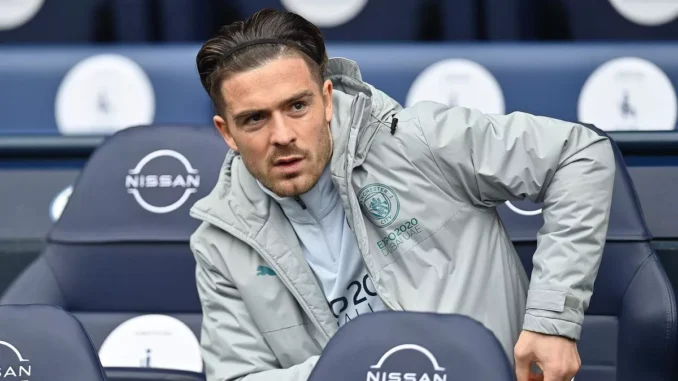
The relationship between a player and a manager is a complex and often delicate dynamic, particularly at the highest levels of professional football. The spotlight shines brightly on these interactions, and every gesture, every word, can be dissected and analyzed for hidden meanings. Recently, the focus has been on Jack Grealish and his situation at Manchester City under the guidance of Pep Guardiola. Grealish, a player known for his dazzling dribbling skills and creative flair, has faced periods of frustration at City, leading to speculation about his role in the team and his relationship with the manager. Guardiola’s recent response to these rumblings offers a glimpse into his thinking and sheds light on the challenges of managing a squad of world-class talent.
Grealish’s journey at Manchester City has been a subject of constant discussion. He arrived at the club with a hefty price tag and high expectations, following a stellar spell at Aston Villa where he was the undisputed star. However, adapting to Guardiola’s system, a system renowned for its tactical intricacies and demanding requirements, has presented its challenges. Grealish has shown flashes of his brilliance, moments where his exceptional talent shines through, but he has also experienced periods of inconsistency and has sometimes found himself on the periphery of the starting eleven. This has naturally led to questions about his happiness at the club and whether he feels he’s fulfilling his potential.
Guardiola, a manager known for his meticulous approach to the game and his unwavering commitment to his tactical philosophy, has addressed the speculation surrounding Grealish’s frustrations. His response offers valuable insights into his management style and his approach to handling players with different personalities and skill sets. He acknowledged the challenges that players face when adapting to his system, emphasizing the importance of patience, understanding, and continuous improvement.
Guardiola’s system demands a high level of tactical discipline and a willingness to contribute both defensively and offensively. Players are expected to adhere to specific roles and responsibilities, and they must be able to adapt to different formations and game plans. This can be a significant adjustment for players who are used to having more freedom and creative license on the field. Grealish, who thrived in a more free-flowing role at Aston Villa, has had to adapt to these demands, learning to balance his creative instincts with the tactical requirements of Guardiola’s system.
Guardiola’s response to the questions about Grealish suggests a deep understanding of the player’s qualities and a commitment to helping him reach his full potential. He emphasized the importance of communication and feedback, highlighting the ongoing dialogue between him and Grealish. He also stressed the need for patience, both on the part of the player and the fans, as adapting to a new system and a new team can take time.
The manager’s comments also touched upon the challenges of managing a squad of world-class players. At Manchester City, Guardiola has an abundance of talent at his disposal, and he has to make difficult decisions about who plays and who doesn’t. He has to balance the needs of the team with the individual aspirations of each player, and he has to create an environment where everyone feels valued and motivated. This is a delicate balancing act, and it requires strong leadership and effective communication.
Guardiola’s approach to player management is characterized by his attention to detail and his commitment to developing each player’s individual skills. He is known for his ability to identify areas for improvement and to provide players with the tools and the guidance they need to reach their full potential. He also places a strong emphasis on teamwork and collective responsibility, fostering a culture where players support each other and work together towards a common goal.
The situation with Grealish is a microcosm of the challenges that many players face when joining a top club. The pressure to perform, the competition for places, and the need to adapt to a new system can be daunting. However, with the right support and guidance, players can overcome these challenges and thrive in their new environment. Guardiola’s response to the questions about Grealish suggests that he is committed to helping the player succeed at Manchester City. He recognizes the player’s talent and potential, and he is determined to help him integrate into the team and reach his full potential.
The ongoing narrative surrounding Grealish’s time at City is a reminder that success at the highest level of football requires more than just individual talent. It requires adaptability, resilience, and a willingness to learn and grow. It also requires a strong relationship with the manager, built on trust, communication, and mutual respect. As Grealish continues his journey at Manchester City, his relationship with Guardiola will undoubtedly play a crucial role in his development and his ultimate success. The manager’s recent comments offer a glimpse into this dynamic and suggest that, despite the challenges, both player and manager are working towards a common goal.
Leave a Reply